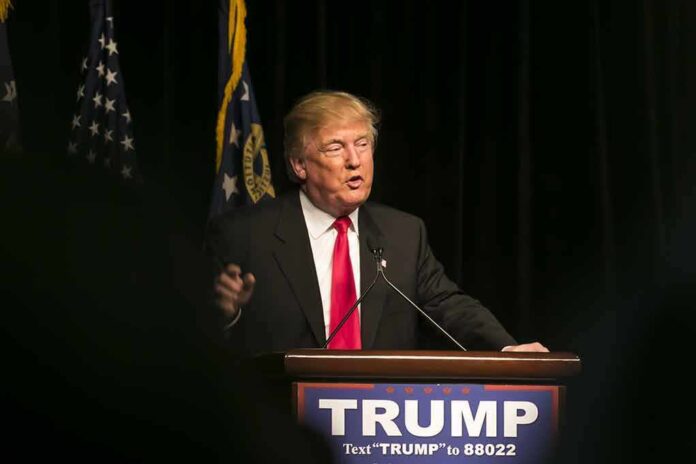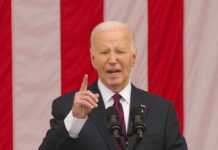Donald Trump’s campaign pledges “universal access” to in-vitro fertilization (IVF), including potential benefits for same-sex couples, marking a significant shift in his approach to LGBTQ+ and reproductive rights.
At a Glance
- Trump’s campaign promises “universal access” to IVF, potentially including same-sex couples
- The proposal contrasts with Trump’s previous stance on LGBTQ+ and reproductive rights
- Trump supports states’ rights on abortion and opposes a federal ban
- The Harris campaign criticizes Trump’s record on IVF and LGBTQ issues
- Implementing universal IVF access would face significant legislative and financial challenges
Trump’s New Stance on IVF and Reproductive Rights
In a surprising move, former President Donald Trump’s campaign has announced support for “universal access” to in-vitro fertilization (IVF), potentially extending benefits to same-sex couples. This stance marks a significant departure from his previous administration’s policies, which often opposed the advancement of LGBTQ+ and reproductive rights.
Trump’s campaign spokesperson, Karoline Leavitt, stated, “President Trump has long been consistent in supporting the rights of states to make decisions on abortion and has been very clear that he will NOT sign a federal ban when he is back in the White House. President Trump also supports universal access to contraception and IVF.” This statement underscores Trump’s new position on reproductive rights, emphasizing state autonomy while promoting broader access to fertility treatments.
Let me be clear: Donald Trump is the reason that fertility treatments are at risk. https://t.co/guwPLJyKj5
— Gwen Walz (@GwenWalz) August 30, 2024
Challenges and Criticisms
While Trump’s proposal has garnered attention, experts highlight significant challenges in implementing such a policy. Alina Salganicoff, director of the women’s health policy program at KFF, a health research nonprofit, explained, “The president cannot do this on his own. You need to have federal funds to do this. Congress needs to appropriate money.” This underscores the legislative and financial hurdles that would need to be overcome to realize universal IVF access.
“Under the Trump administration your government will pay or your insurance company will be mandated to pay for all costs associated with I.V.F. treatment,” Mr. Trump said on Thursday at a rally in Potterville, Mich.
The Harris campaign has strongly criticized Trump’s new stance, questioning its sincerity and highlighting his past actions. Sarafina Chitika, a spokesperson for Vice President Kamala Harris’ campaign, stated, “Donald Trump’s own platform could effectively ban IVF and abortion nationwide” and that “because Trump overturned Roe v. Wade, IVF is already under attack and women’s freedoms have been ripped away in states across the country.”
Republican Reactions and Anti-Abortion Stance
Trump’s proposal has sparked mixed reactions within the Republican Party and among anti-abortion activists. Some view it as a strategic pivot, while others express skepticism about its sincerity and compatibility with conservative values. Anti-abortion groups, in particular, have voiced concerns about the ethical implications of IVF, which often involves the creation and potential destruction of multiple embryos.
“Lila Rose urged her social-media followers not to vote for Trump, equating his enthusiasm for IVF with support for abortion.”
The controversy surrounding Trump’s IVF proposal highlights the complex intersection of reproductive rights, LGBTQ+ issues, and conservative values in American politics. As the debate continues, it remains to be seen how this policy shift will impact Trump’s campaign and the broader political landscape leading up to the election.











